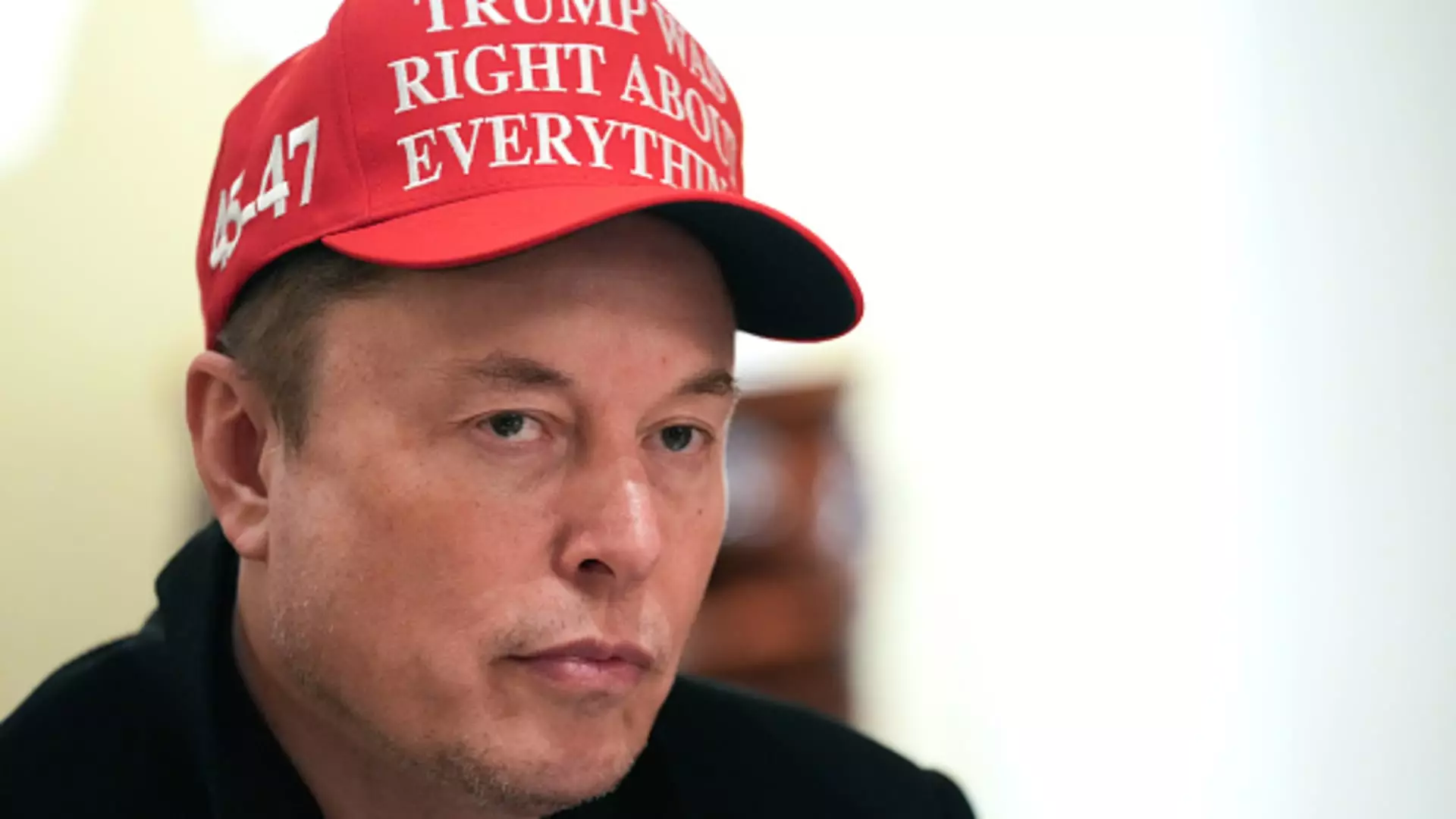Recent trends suggest that the sentiment surrounding Tesla and its CEO, Elon Musk, is significantly waning. A staggering 47% of Americans surveyed now hold negative views about the electric vehicle (EV) manufacturer, amplifying an atmosphere of disengagement that contrasts sharply with its formative years. The company’s stock has faced intense selling pressure, diverging from the once-dominant investor enthusiasm. In comparison, competitors like General Motors (GM) seem to generate more favorable impressions, with a third of the public expressing a positive opinion regarding this legacy automaker.
This discontent is not without cause. Musk’s polarizing actions and vocal political affiliations, particularly in relation to President Trump and certain government employment cuts, appear to have decoupled him from a considerable segment of the potential customer base. Protests outside Tesla’s showrooms signify a vocal discontent that reinforces the perception that Musk’s controversial public life is undermining his company’s brand appeal.
Musk: The Lightening Rod of Controversy
Elon Musk has transcended the role of a typical CEO, evolving into a contentious public figure whose words and actions appear to have wider implications. Alarming statistics reveal that half of the public harbors negative feelings towards Musk himself, depicting him as a lightning rod for criticism. This polarization is particularly telling among Democrats, where his net approval is a dismal -82. Interestingly, the GOP favors him slightly, yet this dichotomy casts a long shadow over Tesla’s brand image.
This chasm between public opinion and Musk’s personal brand inflicts significant ramifications on Tesla’s market strategy. While many groups see the inherent value of EVs, they remain skeptical of the company that has propelled electric vehicles into the mainstream. Micah Roberts from Public Opinion Strategies poignantly notes that “Where Tesla is strongest is among the people least likely to buy an EV.” This evidences a disconnect between enthusiasm for electric vehicles and the brand that leads the movement.
The Electric Vehicle Landscape: A More Favorable Horizon?
Despite the challenges Tesla faces, it is notable that enthusiasm for electric vehicles is significantly higher among younger demographics. Those aged 18 to 34 generally express a positive attitude towards EVs (+19), but simultaneously report a stark negative sentiment towards Tesla (-23). This reveals an urgent call for the company to reevaluate its brand engagement strategies, especially given that young consumers are pivotal to future sales.
The survey results show men are generally more favorable towards EVs, yet they are ambivalent when it comes to Tesla. The data further complicates the picture: while Republicans show support for Tesla, they remain generally negative toward electric vehicles. This intricate web of sentiments suggests that Tesla could be missing an opportunity to address multiple demographics effectively.
In the evolving electric vehicle market, public perception is as crucial as technological innovation. Tesla’s current predicament may serve as a crucial lesson for future companies in the automotive industry: aligning public sentiment with corporate ethos may be equally important as producing cutting-edge technology. The need for Tesla to bridge this divide is paramount if it hopes to retain its foothold atop the electrification wave.

